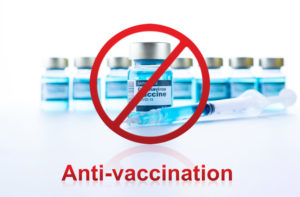By Rose O. Sherman, EdD, RN, NEA-BC, FAAN
When the vaccines received FDA approval, it was initially believed that this might be the last hurdle to convincing the vaccine-hesitant that the science is clear and the vaccine is safe. While FDA approval has changed some minds, we still have a significant number of Americans who still refuse to get vaccinated including nurses. Three days later, an article titled, Nurses Who Won’t Vax Threaten Staffing Shortages ran in Bloomberg news. The number of nurses involved is still quite high – 1 in 8 according to ANA data. Health systems are grappling with mandates in the face of a growing shortage. Only 39% have mandated the vaccine for nurses at this point. Some health systems are in states where businesses are discouraged from vaccine mandates.
Nurse leaders in settings that have not mandated the vaccine tell me that they feel significant moral distress over this issue. Given what is now known about the Delta variant, there is a strong possibility that an unvaccinated nurse could transmit the virus to a patient or an immunocompromised team member. Some have said that if they had a choice – they would not keep these nurses on their staff. One CNO told me, “I am so angry with some of my own nurses who tell me about their freedom to choose when their choice impacts others. I also wonder about these nurses who don’t believe the scientific evidence on this – what about the rest of their nursing care? Do they pick and choose other policies and practices based on personal beliefs?”
The American Nurses’ Association’s (ANA) stance on nurse immunizations is clear: vaccinate unless there is a medical exception. The organization notes that they do not support vaccine exemptions based on “philosophical or religious exemptions,” and they note that anyone who cannot receive a vaccine due to medical reasons “may be required to adopt measures or practices in the workplace to reduce the chance of disease transmission.”
There are no easy answers to what is happening here. Much of the public is in disbelief that nurses who themselves are exposed to COVID and see the impact would not take the vaccine. Part of the problem is that it can be very difficult to change one’s mind when ideas become entrenched. In his book, Think Again: The Power of Knowing What You Don’t Know, Adam Grant points out that most of us refresh our wardrobes every year, renovate our kitchens every decade, but never update our beliefs and our views.
Usually, once we accept information as correct such as the vaccine is unsafe or should never be mandated, we rarely bother to revisit our ideas. Instead, we take things as being true just because we believe them. Rethinking our beliefs starts with “intellectual humility” or a willingness to acknowledge what you don’t know in situations. To do this effectively, we need to control our “totalitarian egos,” whose job is to keep threatening information. When our core beliefs are challenged, it can evoke a fight or flight mechanism. If you allow your opinions to become your identity, any assault on your worldview is a threat to your sense of self. That is what has happened with at least some nurses who are now staunch anti-vaccine.
Helping our staff to be more open to new ideas requires leadership finesse. Listening is a crucial skill, along with a willingness to point out your opponents’ useful observations. We should avoid being “logic bullies” who try to change others’ minds with facts—it does not work. Refuting a point of view can produce antibodies in the individual that effectively immunizes them against future influence attempts. People become more confident rather than less sure of what they believe.
Only an individual can change their minds, but it is worth asking—what evidence would change your mind or what are unvaccinated patients admitted to the hospital telling you about their choices? Asking people to talk about how they have formed their beliefs can be a beginning step to change. Motivational interviewing techniques are an evidence-based approach to change thinking and behavior.
Yet at the end of the day, it is the nurse’s choice and some may not choose wisely or may choose to resign if it is mandated.
References
Grant A. (2021). Think Again: The Power of Knowing What You Don’t Know. New York: Viking Press
© emergingrnleader.com 2021
BRAND NEW WEBINAR Flyer Become the Boss No One Wants to Leave Nurse Retention in Turbulent Times
Give your leadership team the gift of a highly rated webinar – Nursing Leadership in 2021: Rebooting after a Life-Quake A Nursing Leadership Reboot Workshop.
Read the Nurse Leader Coach – Available at Amazon and Other Book Sellers.
Recommended Book by the Association of Critical Care Nurses – The Nuts and Bolts of Nursing Leadership: Your Toolkit for Success




 LinkedIn
LinkedIn Instagram
Instagram